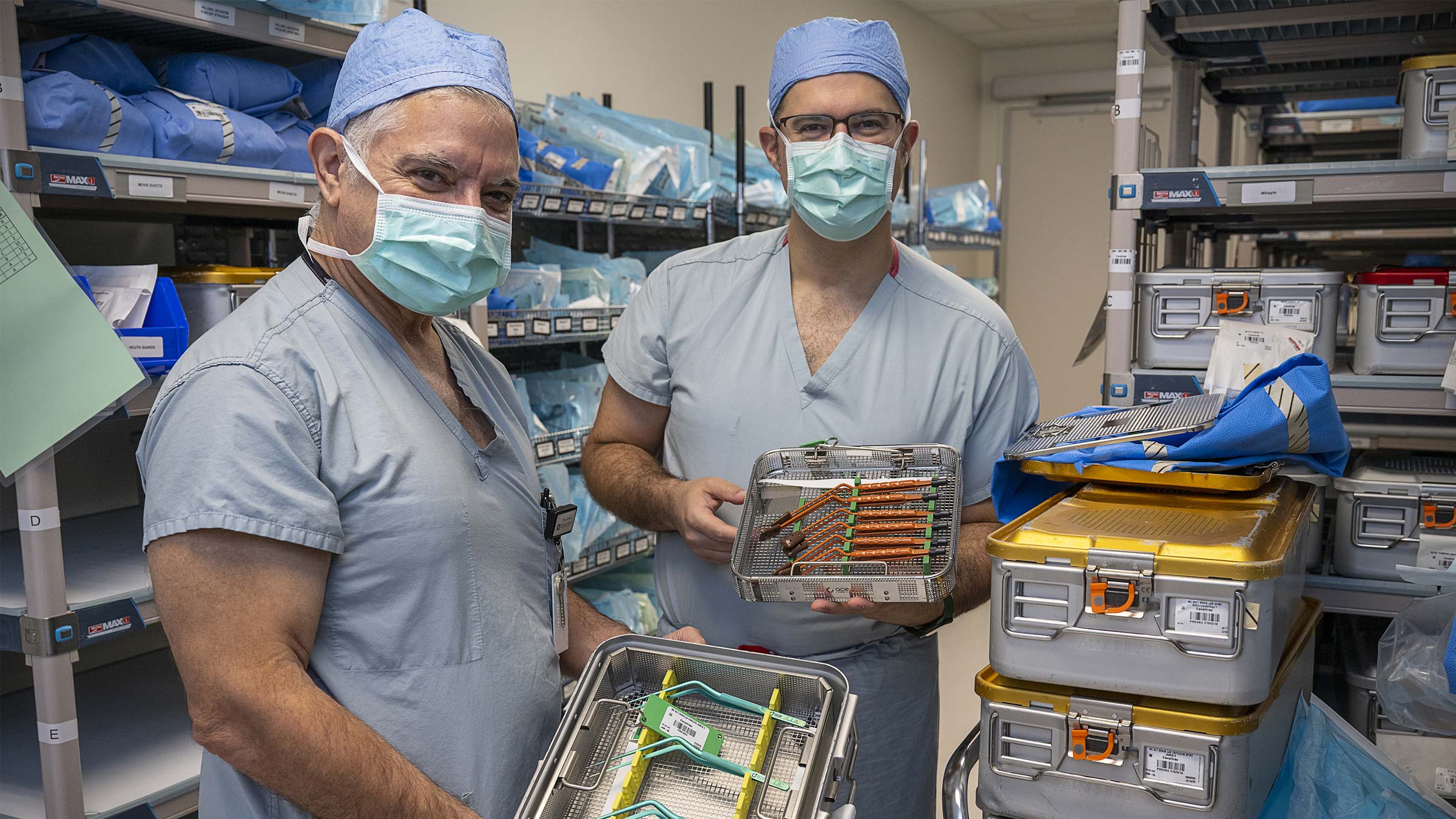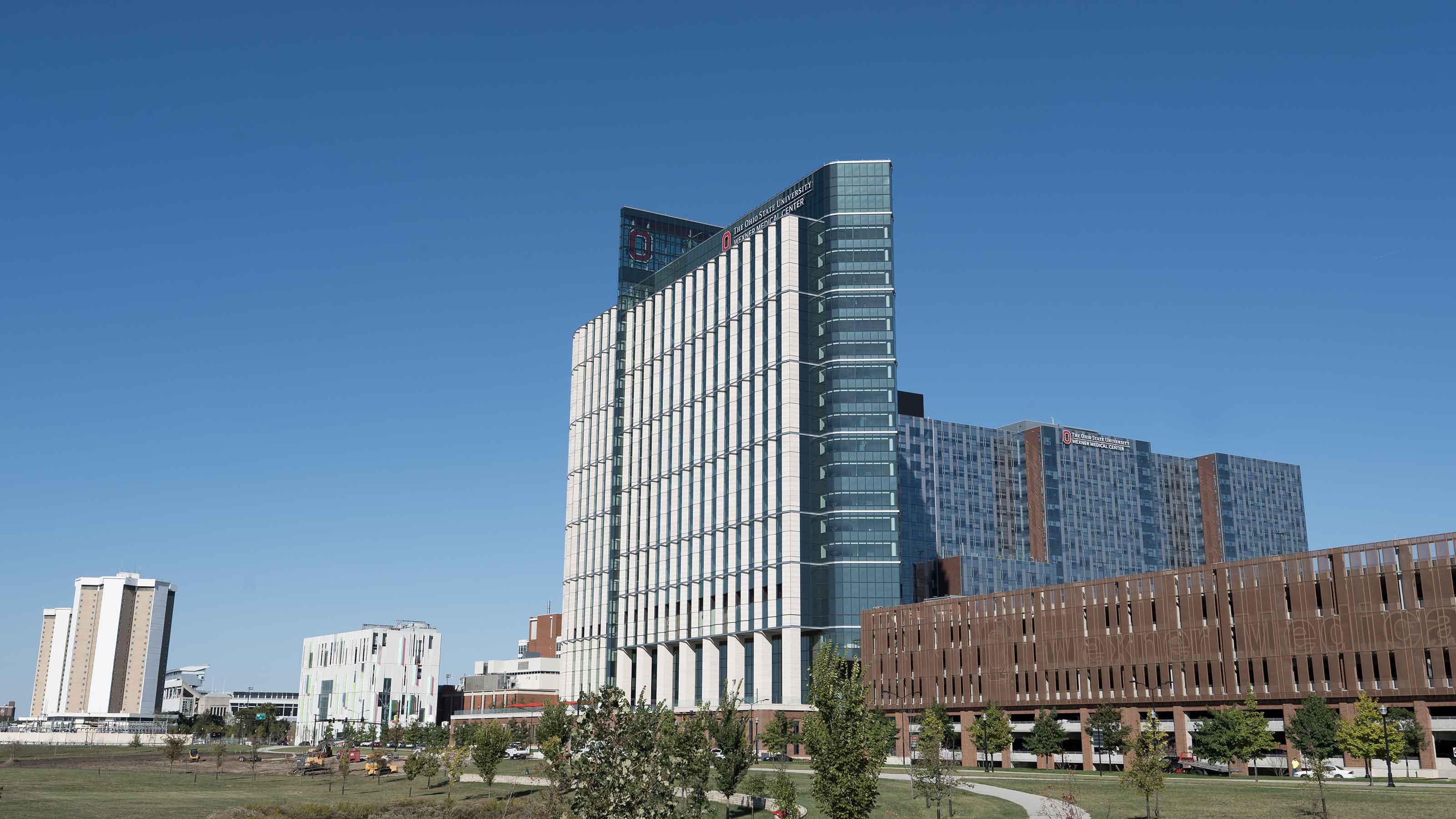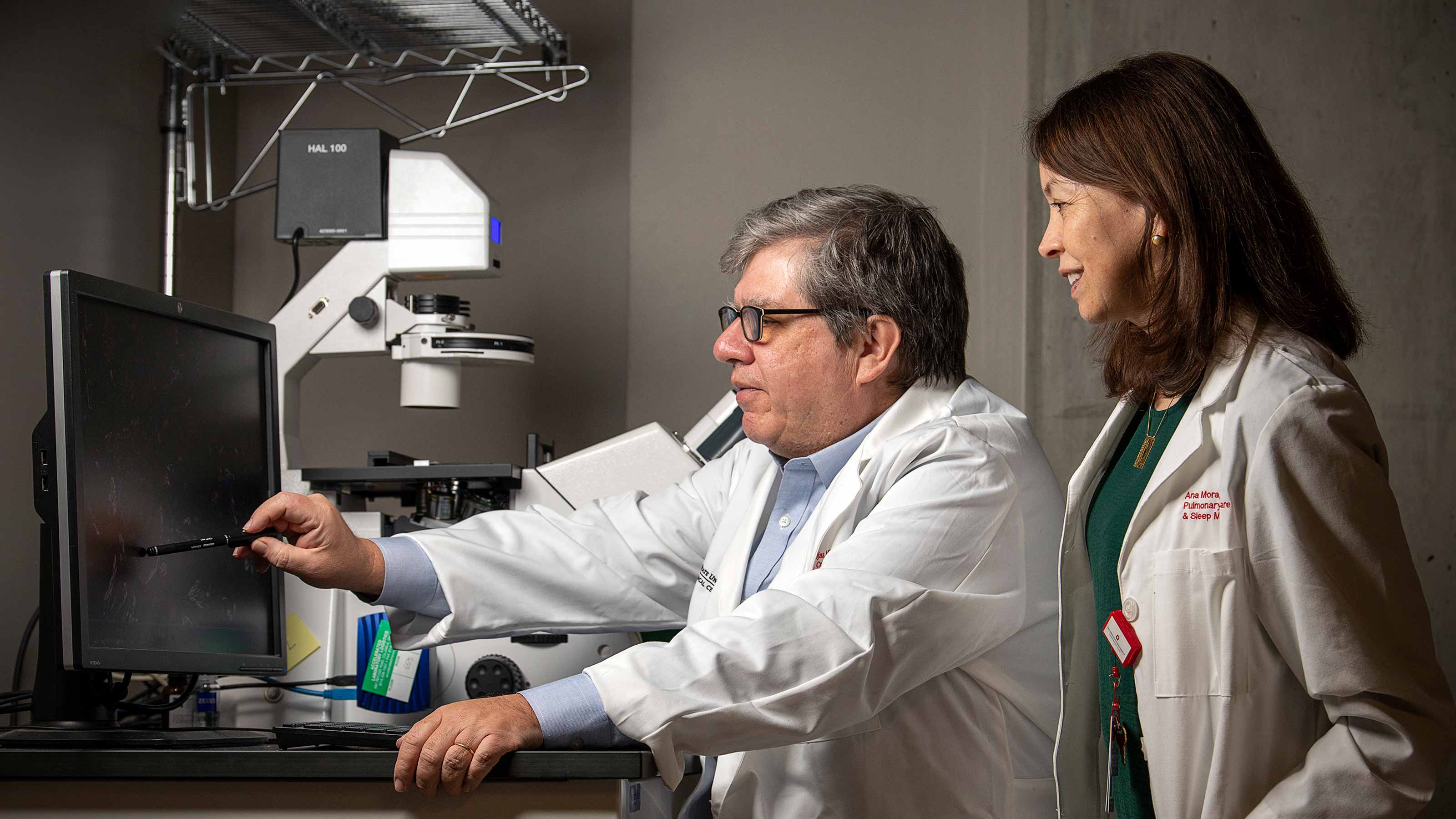Worlds apart, surgeons follow love of science to become leading skull base tumor surgery team

Ricardo Carrau, MD, and Daniel Prevedello, MD, have spent most of their careers working side-by-side to perform one of the world’s most complex procedures: skull base surgery. The pair’s mutual respect and admiration was honed by years in the operating room, but a look at their early ambitions reveals the duo share an early and lifelong desire to excel at science.
Ricardo Carrau, MD: Persistence and a fascination with science at a young age
Dr. Carrau always had an insatiable gift for learning. As a child, he was highly gifted and hyperlexic, which meant that he had advanced reading levels far beyond his natural age. He started grade school at the age of 4. He would later skip two grades.
By about the age of 10, he dreamed of becoming a scientist. He read up on famous Nobel Prize winners and took note of their persistence. His mother, who was a schoolteacher, bought him microscope kits and science kits instead of toys.
At 18, he was the youngest member of his medical school class at the University of Puerto Rico School of Medicine where he earned a U.S. Air Force scholarship.
He initially completed a residency program for internal medicine.
“I didn’t think that it would fit my personality forever in a variety of ways. I love knowing the physiology, but the day-to-day practice was not for me,” Dr. Carrau says. “So, I decided to look into surgical specialties and I fell in love with ear, nose and throat, and mainly because of the head and neck surgery. The specialty was challenging but also was rewarding to help people battle cancer.”
After completing medical school, training and residencies, he left Puerto Rico to serve in the U.S. Air Force and for a fellowship at the University of Pittsburgh. Following his fellowship, he returned to the Air Force to finish his commitment, after which he joined the faculty of the University of Pittsburgh Otolaryngology Department. Dr. Carrau eventually met Dr. Prevedello when he joined the Neurosurgery Department as a fellow and was subsequently recruited as faculty.
“We had worked together in Pittsburgh very well,” Dr. Carrau says. “We formed a great team and he was a friend.”
When Dr. Prevedello took a job at The Ohio State University Wexner Medical Center and The Ohio State University Comprehensive Cancer Center – Arthur G. James Cancer Hospital and Richard J. Solove Research Institute (OSUCCC – James), Dr. Carrau made a visit.
“I came to visit because of him. But I was so impressed with the team that Ohio State had in head and neck that I immediately decided that that this was a place for me,” Dr. Carrau says.
Daniel Prevedello, MD: Neurosurgery, a lifelong challenge
Daniel Prevedello always planned to become an engineer. At the age of 17, in his native Brazil, he had to take lengthy entry tests for engineering school spanning over four days. A friend convinced him to take the test for medicine as well. He passed them both.
“All of a sudden I had to make a decision,” he says. “My mom even said, ‘You should try medicine for a year, then if you don’t like it, you can always go back to engineering. But check it out and see how it goes.’”
He was quickly accepted into medical school at the Universidade Federal do Parana in Brazil and developed a passion for anatomy and neuroscience.
Early on during medical school, well before selecting a specialty, he purchased a giant book about neuroscience and dove in.
The specialty was challenging and once he began studying it, he saw correlations in his own life. Dr. Prevedello’s maternal grandfather was a psychiatrist, and his sister spent a lifetime dealing with seizures and relying on medications.
“I was always intrigued by having that so close to me. I grew up seeing her struggling with seizures and things like that,” Dr. Prevedello says. “I think it also helped me to be motivated to study deeper and get more out of it.”

We’re creating a cancer-free world
Our experts develop and deliver the most advanced targeted treatments leading to better outcomes and more hope.
Learn More



